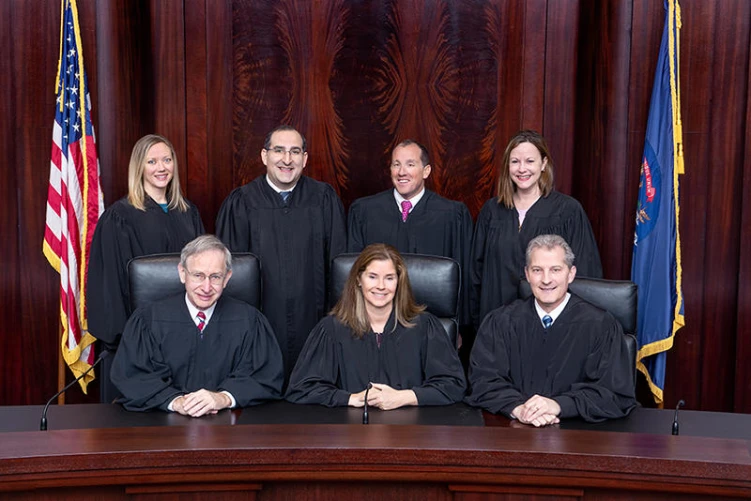- Establish clear policies and procedures to manage workplace allegations.
- Make reporting easy by providing multiple channels for employees to submit complaints.
- Follow up promptly with employees after an allegation is reported.
- Handle all proceedings confidentially to protect involved parties.
- Take legal action if necessary, such as disciplinary measures, criminal charges, or utilizing a trusted lawyer.
It is essential to effectively manage workplace allegations to maintain a healthy and safe work environment. Poorly managed workplace allegations can lead to costly litigation, damaged employee morale, and other disruptions that can seriously affect your business.
As an employer, it is important to be aware of your legal obligations when dealing with allegations raised by employees. It is also important to ensure that any handling of allegations is dealt with in a manner that is fair and equitable. The following five tips will help you properly manage workplace allegations as an employer.
1. Establish Policies and Procedures
The first step in managing workplace allegations is establishing clear organizational policies and procedures. This includes outlining necessary steps for investigating complaints, documenting the process, and providing clear guidance to employees on how to raise allegations. Clearly outlined policies and procedures can help ensure that all allegations are addressed consistently and by legal requirements.
It is important to involve all relevant stakeholders in establishing policies and procedures. This could include managers, supervisors, Human Resources representatives, legal counsel and employees. Each stakeholder will have their own expertise in areas such as labor laws, HR practices and workplace safety that they can bring to the table. Having a diverse group of people involved in the policy and procedure development process can ensure that your organization considers all relevant considerations.
2. Make Reporting Easy

Creating an environment where employees feel comfortable reporting workplace allegations is essential. This includes providing multiple channels for reporting, such as a designated hotline or email address for anonymous reports of misconduct. It also includes ensuring someone can respond to claims quickly and appropriately, either internally or through external resources like specialized lawyers or HR consultants.
You should also ensure a culture of accountability and transparency to encourage reporting. Employees should feel that their reports will be taken seriously, investigated promptly, and handled with the utmost confidentiality. In addition, policies and procedures must be implemented to ensure any allegations are addressed impartially. You can create clear guidelines for reporting misconduct, including outlining procedures for submitting complaints, who should investigate them, and what will happen if the complaint is found valid.
3. Follow Up Promptly and Professionally
It is important to follow up promptly once an allegation has been reported. Employees should be informed when the investigation into their complaint occurs and how long it will take. If additional information or evidence is required, the employee should also be informed of this. Communication with the employee professionally and courteously throughout the process is also important.
4. Handle Allegations Confidentially
Regardless of whether an allegation turns out to be true or not, it is essential to keep all allegations confidential and only share relevant details with those who need to know. This helps protect both parties involved while ensuring the investigation can proceed without interference from other employees or outside sources.
5. Take Legal Action

Once an allegation has been investigated and assessed, appropriate action must be taken based on its outcome. If necessary, legal action should be taken against the alleged perpetrator. This could include disciplinary measures or even criminal charges depending on the severity of the allegations.
Here are some legal actions to utilize:
Disciplinary Action
You may take disciplinary action against the accused perpetrator depending on the allegations’ severity. Depending on the circumstances, this could include anything from a verbal reprimand or suspension to dismissal. Taking disciplinary action sets a clear message that harassment and discrimination are not tolerated in the workplace and can help prevent future incidents.
Documenting Incidents
You should document any incidents of alleged harassment or discrimination and report them as soon as possible. It is important to keep detailed records of all relevant evidence such as witness statements, emails, and other relevant information that can be used if legal action needs to be taken in the future.
Reporting Crimes
In some cases, you may be required to report criminal activities in the workplace. If a crime has been committed, you must contact law enforcement and provide them with all the necessary information to take appropriate action.
Civil Action
You may pursue civil action against the accused perpetrator if the allegations are serious enough. In such cases, having experienced legal counsel is essential. Fleeson.com provides access to a wide network of lawyers specializing in workplace misconduct. They can help you navigate the complexities of civil litigation and protect your rights. With their help, you can seek the deserved justice and ultimately protect their bottom line.
In Closing
By following these five tips, employers can ensure workplace allegations are properly and effectively managed. Establishing clear policies and procedures, making reporting easy, following up promptly and professionally, keeping all proceedings confidential, and taking appropriate legal action can help protect your business from costly litigation while creating a safe working environment for employees.



